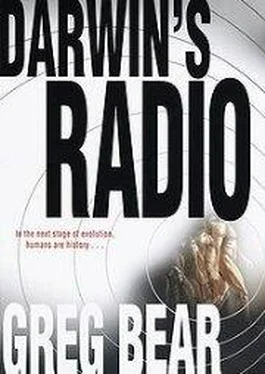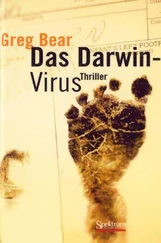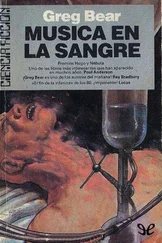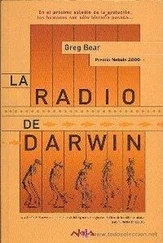“Coke would be great,” Dicken said.
“Just fly in?”
“Drove from Bethesda,” Dicken said.
“Going to be some miserable weather this afternoon,” the steward said. “Thunderstorms by five, so the weather people say at Andrews. We get the best weather reports here.” He winked and smiled, then left and returned after a few minutes with a Coke and a glass of chopped ice.
More people began arriving ten minutes later. Dicken recognized the governors of New Mexico, Alabama, and Maryland; they were accompanied by a small group of aides. The room would soon hold the core of the so-called Governors’ Revolt that was raising hell with the Taskforce across the country.
Augustine was going to have his finest hour, right here in the basement of the White House. He was going to try to convince ten governors, seven from very conservative states, that allowing women access to a complete range of abortion measures was the only humane course of action.
Dicken doubted the plea would be met with approval, or even polite disagreement.
Augustine entered some minutes later, accompanied by the White House-Taskforce liaison and the chief of staff. Augustine put his valise on the table and walked over to Dicken, his shoes clicking on the tile floor.
“Any ammunition?” he asked.
“A rout,” Dicken said quietly. “None of the health agencies felt we had a chance of taking control again. They feel the president has lost his grip on the issue, too.”
Augustine’s eyes wrinkled at the edges. His crow’s feet had grown noticeably deeper in the last year, and his hair had grayed. “I suppose they’re going it on their own — grass-roots solutions?”
“That’s all they see. The AMA and most of the side branches of the NIH have withdrawn their support, tacitly if not overtly.”
“Well,” Augustine said softly, “we sure as hell don’t have anything to offer to get them back in the fold — yet.” He took a cup of coffee from the steward. “Maybe we should just go home and let everyone get on with it.”
Augustine turned to look as more governors entered. The governors were followed by Shawbeck and the secretary of Health and Human Services. “Here come the lions, followed by the Christians,” he said. “That’s only as it should be.” Before leaving to sit at the opposite end of the table, in one of the three seats where no tiny flags flew, he said, in a very low voice, “The president’s been talking with Alabama and Maryland for the last two hours, Christopher. They’ve been arguing with him to delay his decision. I don’t think he wants to. Fifteen thousand pregnant women were murdered in the last six weeks. Fifteen thousand, Christopher.”
Dicken had seen that figure several times.
“We should all bend over and get our butts kicked,” Augustine growled.
Mitch estimated there were at least six hundred people in the crowd moving toward the top of the hill. A few dozen onlookers followed the resolute group with its wooden ring and pillar.
Kaye took his hand. “Is this a Seattle thing?” she asked, pulling him along. The idea of a fertility ritual intrigued her.
“Not that I’ve heard of,” Mitch said. Since San Diego, the smell of too many people gave him the willies.
At the top of the promontory, Kaye and Mitch stood on the edge of a large flat sundial, about thirty feet across. It was made of bas-relief bronze astrological figures, numerals, outstretched human hands, and calligraphic letters showing the four points of the compass. Ceramics, glass, and colored cement completed the circle.
Mitch showed Kaye how the observer became the gnomon on the dial, standing between parallel lines with the seasons and dates cast into them. It was two o’clock, by her estimation.
“It’s beautiful,” she said. “Kind of a pagan site, don’t you think?” Mitch nodded, keeping his eye on the advancing crowd.
Several men and boys flying kites moved out of the way, pulling and winding their strings, as the group climbed the hill. Three women carried the ring, sweating beneath the weight. They lowered it gently to the middle of the sundial. Two men carrying the pillar stood to one side, waiting to set it down.
Five older women dressed in light yellow robes walked into the circle with hands clasped, smiling with dignity, and surrounded the ring in the center of the compass. The group said not a word.
Kaye and Mitch descended to the south side of the hill, overlooking Lake Union. Mitch felt a breeze coming from the south and saw a few low banks of cloud moving over downtown Seattle. The air was like wine, clean and sweet, temperature in the low seventies. Cloud shadows swung dramatically over the hill.
“Too many people,” Mitch told Kaye.
“Let’s stay and see what they’re up to,” Kaye said.
The crowd compacted, forming concentric circles, all holding hands. They politely asked Kaye and Mitch and others to move farther down the hill while they completed their ceremony.
“You’re welcome to watch, from down there,” a plump young woman in a green shift told Kaye. She explicitly ignored Mitch. Her eyes seemed to track right past him, through him.
The only sound the gathering people made was the rustling of their robes and the motion of their sandaled feet in the grass and over the bas-relief figures of the sundial.
Mitch shoved his hands into his pockets and hunched his shoulders.
The governors were seated at the table, leaning right or left to speak in murmurs with their aides or adjacent colleagues. Shawbeck remained standing, hands clasped in front of him. Augustine had walked around one quarter of the table to speak with the governor of California. Dicken tried to puzzle out the seating arrangements and then realized that someone was following a clever protocol. The governors had been arranged not by seniority, or by influence, but by the geographic distribution of their states. California was on the western side of the table, and the governor of Alabama sat close to the back of the room in the southeastern quadrant. Augustine, Shawbeck, and the secretary sat near where the president would sit.
That meant something, Dicken surmised. Maybe they were actually going to bite the bullet and recommend that Augustine’s policies be carried out.
Dicken was not at all sure how he felt about that. He had listened to presentations on the medical cost of taking care of second-stage babies, should any survive for very long; he had also listened to figures showing what it would cost for the United States to lose an entire generation of children.
The liaison for Health stood by the door. “Ladies and gentlemen, the president of the United States.”
All rose. The governor of Alabama got to his feet more slowly than the others. Dicken saw that his face was damp, presumably from the heat outside. But Augustine had told him that the governor had been in conference with the president for the past two hours.
A Secret Service agent dressed in a blazer and golf shirt walked past Dicken, glanced at him with that stony precision Dicken had long since become used to. The president entered the room first, tall, with his famous shock of white hair. He seemed fit but a little tired; still, the power of the office swept over Dicken. He was pleased that the president looked in his direction, recognized him, nodded solemnly in passing.
The governor of Alabama pushed back his chair. The wooden legs groaned on the tile floor. “Mr. President,” the governor said, too loudly. The president stopped to speak with him, and the governor took two steps forward.
Two agents glanced at each other and swung about to politely intervene.
“I love the office and I love our great country, sir,” the governor said, and wrapped the president in his arms, as if delivering a protective bear hug.
Читать дальше
Конец ознакомительного отрывка
Купить книгу












